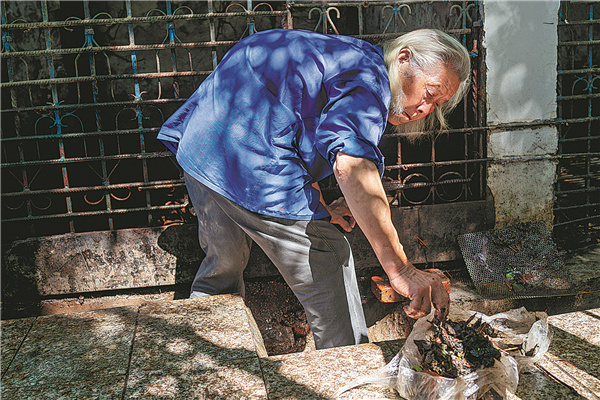One man and his menagerie


Labor of love
Living in the zoo himself, Luo gets up at about 5 am, checks the condition of the animals, cleans their enclosures and goes to the market to buy feed for them, before settling down at the gate to welcome visitors.
At night, he observes the animals and refills their food and water, and he even gets up at around 2 am to tend to the older ones.
He calls the bear Guaiguai, which means "darling" in Chinese, a common nickname for children.
It's been about 19 years since Guaiguai came to the zoo. When Luo first saw the creature, it was missing a paw, so he purchased Guaiguai for 3,000 yuan. It's illegal to trade bear paws in China, which were once used as ingredients in rare cuisines and in traditional Chinese medicine.
Luo pays particular attention to the bear due to her aging condition-now Guaiguai can only eat soft food.
He purchased an aging lion and tiger from a larger zoo in the hope of boosting visitor numbers to his own.

However, since 2016, when the pair finally succumbed to age, footfall to the zoo has waned, he says, because people want to see "the kings of the jungle".
He recalls that, in the 1990s, when the zoo was in its heyday, he would welcome about 100 people a day.
"It's not that easy to feed animals. You have to know about their different habits and characteristics. I used to observe their feces to learn about what they ate in the wildness," he says.
He recently saved two sand badgers from a grocery market, and after one month, the duo, which used to stay away from him, seemed to be moved by his persistence, and came to greet him when he brought them food.
"You have to be patient and gentle, and you can never yell at them," he says.
Asked which animal is his favorite, he says he treats all of his animals with equal affection, without preference for any one.
"Animals have a kind nature. They never hurt me. If they are treated well, they will also be nice in return."




































